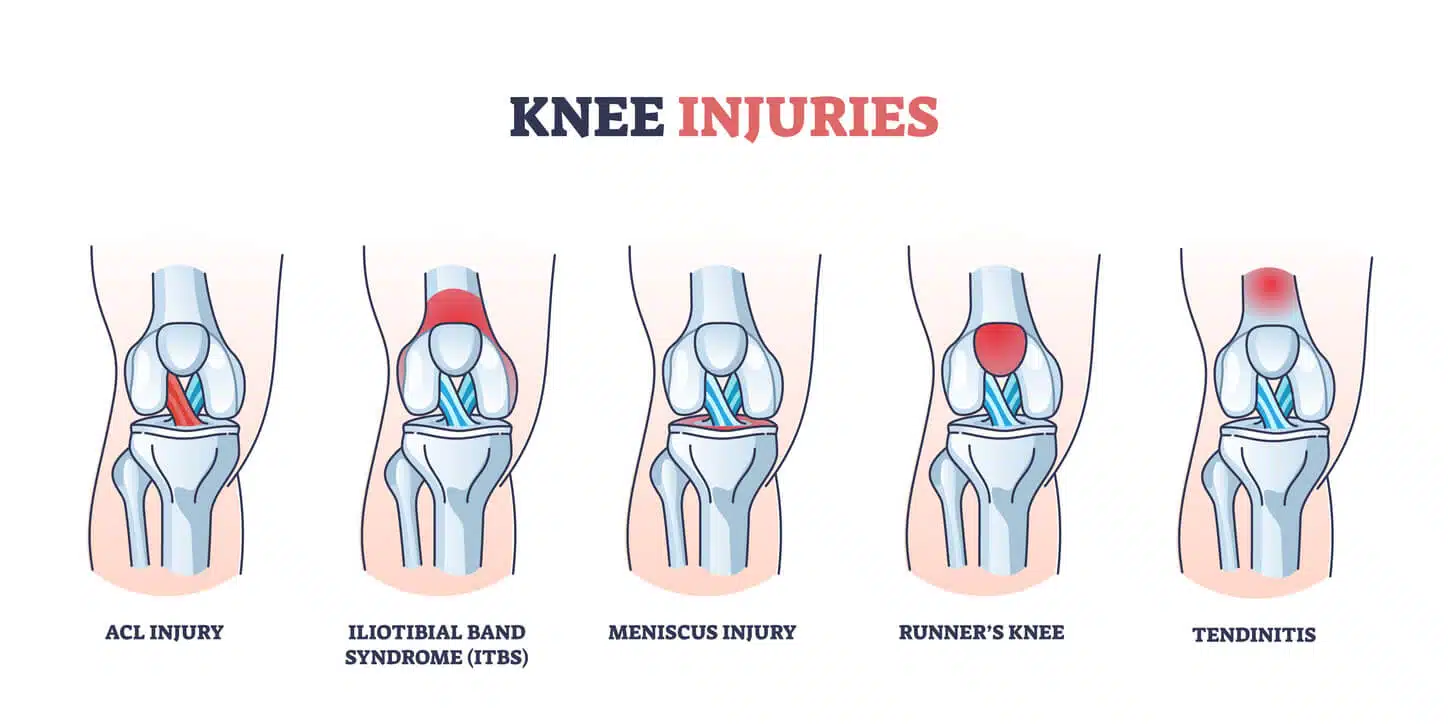
Knee tendonitis, also called patellar tendonitis or jumper’s knee, is a condition characterized by the inflammation and irritation of the patellar tendon in the knee. The patellar tendon connects the kneecap to the shinbone and works with nearby muscles to allow you to jump, run, and kick. Knee tendonitis occurs when small tears develop on the tendon.
This type of injury is common in athletes, those who run daily, or do regular exercise. Understanding the common sports and activities that contribute to the development of knee tendinitis is important in order to prevent it.
What Increases Your Risk of Knee Tendonitis?
Some of the factors that can elevate your risk of developing knee tendonitis are:
Overuse and Repetitive Movements
Engaging in repetitive movements that strain the knee tendons can lead to inflammation over time. Activities involving frequent bending, jumping, or running can stress the tendons and trigger knee tendonitis.
Repetitive movements are necessary in sports, and you cannot always avoid it as an athlete. However, rest and recovery, proper warm-ups and cool downs, and stretching and strengthening of the muscles that support work with the tendon can help prevent knee tendonitis.
Improper Technique
Incorrect form or technique during exercises or sports can place undue stress on the patellar tendon, which can lead to a tearing of the tissue. Poor alignment and improper movement patterns should be avoided. Proper technique should always be maintained while playing and during exercise.
Muscle Imbalances
Muscle imbalances, where certain muscle groups are stronger than others, can cause uneven pressure on the tendons, leading to inflammation and irritation. The patellar tendon works with the quadricep muscles, therefore these should be strengthened, along with hip muscles and gluteal muscles, to prevent straining of the tendon.
Sudden Increase in Intensity
Rapidly increasing the intensity, duration, or frequency of a sport or exercise without proper conditioning can strain the knee tendons, making them susceptible to tendonitis. A gradual increase is recommended to ensure your body is ready to take on more intense activity.
Aging
As individuals age, tendons become less flexible and more prone to injury. Knee tendonitis risk increases with age, especially if combined with other risk factors. Adjustments to diet and exercise and added support for seniors to engage in activities can help prevent injuries.
Activities and Sports Linked to Knee Tendonitis
Certain sports and activities put you at greater risk of a patellar tendon injury.
Running
The repetitive impact and high force exerted during running can strain the knee tendon.
Jumping Sports
Activities that involve frequent jumping, such as basketball, volleyball, football, and jumping events, put immense stress on the tendons around the knee joint.
Track and Field
Knee tendonitis is also common in track and field due to the repetitive and high-impact nature of many events. The constant running, jumping, and rapid changes in direction place significant strain on the knee tendons.
Cycling
You can strain your knee tendon without being on your feet. Case in point: long hours of cycling, on hilly terrain, especially with improper bike setup or form, can lead to an injury to the patellar knee tendon.
Squats
Improper squatting techniques can also strain the patellar tendon. Your knees should be in line with your hips when doing squats to prevent knee tendonitis.
Dancing
Patellar tendonitis is also common in dancers. High-impact dance routines or movements that involve repeated bending and flexing of the knee can lead to tendonitis.
Knee Tendonitis Treatment in North Dakota
The orthopedic surgeons at The Bone & Joint Center have advanced training in sports medicine and treat all types of injuries of the knee, including patellar tears or tendonitis, and can treat it using conservative and surgical methods. We also ensure patients understand how to prevent this type of injury while still engaging in an active lifestyle.
For the expert treatment of knee tendonitis, schedule an appointment with us today. Call (701) 946-7400 or (866) 900-8650 or use our online form to send an appointment request.

